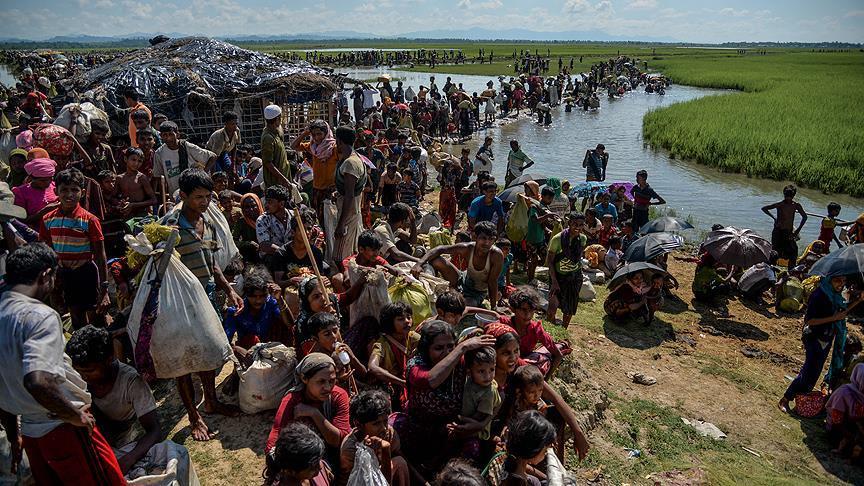
Rohingya need ‘protected homeland in Myanmar’ for being repatriated, says pro-democracy Euro-Burma Office head
By Sorwar Alam | Published by Anadolu Agency on December 17, 2018
ANKARA — The U.S. House of Representative vote declaring persecution of the Rohingya minority in Myanmar a “genocide” should encourage other nations to follow suit, a senior rights activist said.
In an interview with Anadolu Agency on last week’s vote, Harn Yawnghwe, son of Myanmar’s first president Sao Shwe Thaike, said the move “affirms the action taken by the International Criminal Court to further investigate, and the UN’s Independent International Fact-Finding Mission (IIFFM) report that there is credible evidence against the Myanmar government and its security forces.”
The U.S. House of Representatives approved a resolution by a vote of 394-1 on Dec. 14 affirming “the Burmese military’s actions were genocide against the Rohingya people”.
A UN fact-finding mission on Myanmar found the military guilty of genocide and crimes against humanity including rape, gang rape, sexual slavery, forced nudity, mutilations, torture, persecution, and enslavement.
The Canadian government, parliament and Senate also recognized atrocities against Rohingya a genocide in September.
“This should encourage other nations that are undecided to also recognize that what is happening in Myanmar is a genocide,” said Yawnghwe, who is also the executive director of Brussels-based Euro-Burma Office, which promotes democracy in his home country.
The U.S. move would mean that “the international community has an obligation to act to stop the genocide,” according to Yawnghwe.
“Immediate action is needed to protect the Rohingya. They need a protected homeland in Myanmar.”
Repatriation process
He also voiced concern over the repatriation process of hundreds of thousands of Rohingya from Bangladesh, where they took shelter fleeing brutality in the Rakhine state of Myanmar last year.
A repatriation “until a protected homeland is established” would put the devastated minority “in grave danger because the Myanmar government has not changed its policies or put into place any measures to prevent another massacre of Rohingya.”
He suggested broader economic and political sanctions against the Myanmar government and military to show “they cannot get away with genocide”.
“They need to reform and change. The Myanmar public needs to also know that they cannot kill or persecute a minority with impunity.
“It will give the Rohingya hope that they may be able to return safely and live a secure life in their former homes without fear of further persecution. Without hope and without a measure of control over their own lives, people get desperate. Desperate people do desperate things. But the international community must act before it is too late.”
The Rohingya, described by the UN as the world’s most persecuted people, have faced heightened fears of attack since dozens were killed in communal violence in 2012.
According to Amnesty International, more than 750,000 Rohingya refugees, mostly women and children, have fled Myanmar and crossed into Bangladesh after Myanmar forces launched a crackdown on the minority Muslim community in August last year.
Since Aug. 25, 2017, nearly 24,000 Rohingya Muslims have been killed by Myanmar’s state forces, according to a report by the Ontario International Development Agency (OIDA)
More than 34,000 Rohingya were also thrown into fires, while over 114,000 others were beaten, said the OIDA report, titled “Forced Migration of Rohingya: The Untold Experience.”
Some 18,000 Rohingya women and girls were raped by Myanmar’s army and police and over 115,000 Rohingya homes were burned down and 113,000 others vandalized, it added.
The UN has also documented mass gang rapes, killings — including of infants and young children — brutal beatings and disappearances committed by Myanmar state forces.
In a report, UN investigators said such violations may have constituted crimes against humanity.
